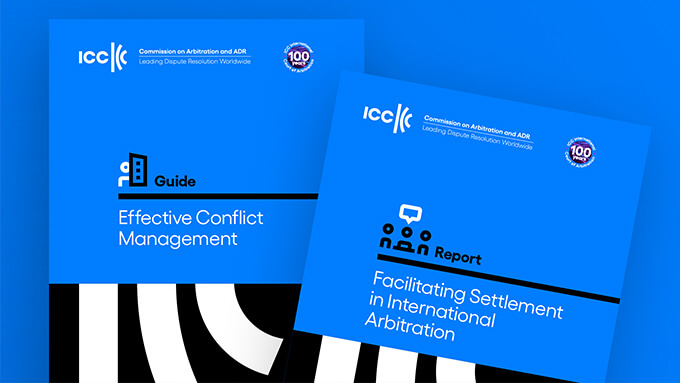Constitutional Court Decided That Lack of Jurisdiction Decision Rendered due to Arbitration Agreement Does Not Violate the Right to Property
Introduction
It is well known that the existence of a valid arbitration agreement in dispute resolution eliminates the jurisdiction of the courts. If, despite the existence of a valid arbitration agreement, one of the parties takes the dispute to court and the opponent party raises objection to the jurisdiction, the court must decide that it lacks jurisdiction.
This issue, which is frequently discussed before the courts of law, is associated with the right to the property. Recently, this right became the subject of a Constitutional Court decision. The applicant filed an individual application with the Constitutional Court, claiming that his right to recovery was abolished as a result of the lengthy trial before Turkish court and the court’s lack of jurisdiction decision rendered due to the existence of a valid arbitration agreement. In its decision on application number 2018/5832 dated 08.08.2021 (“Decision”), the Constitutional Court unanimously decided that the right of property was not violated. The decision was published in the Official Gazette dated 07.09.2021 and numbered 31591.
The Dispute Subject to the Decision
The dispute arose from damage to the cargo carried in maritime transport. The seller had agreed with the carrier for the transport of exported goods to a foreign port. After arrival, it was observed that the goods had been damaged by sea water. The consignee notified the carrier of the damage on the same date. The cost of the damaged goods was paid to the shipper (seller) within the scope of the insurance policy.
As a successor to the rights of the shipper, the insurance company initiated enforcement proceedings against the carrier, and the proceedings were stopped upon the objection of the carrier. Thereupon, the insurance company filed a lawsuit for the annulment of the objection against the carrier before the Istanbul 17th Commercial Court of First Instance (“Court”) , which acts as a specialized maritime court. The defendant carrier claimed that the Turkish courts had no jurisdiction to resolve the dispute, as there was a reference to the arbitration clause in the charter party (contract of carriage) in the bill of lading, which is binding in terms of the legal relationship between the parties. The objection of the defendant was rejected by the Court at the first hearing dated 29.01.2013. While deciding to reject the arbitration objection, the Court emphasized that the reference to the contract of carriage in the bill of lading related only to the cost of carriage and did not cover the arbitration clause. As a result of the trial, the Court decided to accept the claim on 25.06.2015.
On appeal, the Court of Cassation concluded on 12.01.2017 that the Turkish courts has no jurisdiction to resolve the dispute and overturned the trial court's decision. The Court of Cassation stated that the arbitration clause in the contract of carriage was included in the bill of lading by reference and was valid, and concluded that the dispute should be resolved through arbitration. They based their decision on the wording on the front of the bill of lading stating that it was "to be used with the charter party," as well as wording on the reverse side stating that “all the terms and conditions, rights and exceptions of the charter party whose date is stated on the reverse of the bill of lading, including the applicable law and arbitration clause, are thus valid.” Complying with the Court of Cassation’s annulment decision, the Istanbul 17th Commercial Court of First Instance decided to dismiss the case on 25.05.2017 due to lack of jurisdiction. After examining the decision of the Court on lack of jurisdiction upon the appeal of the plaintiff, the Court of Cassation upheld the decision of lack of jurisdiction on 04.12.2017.
Allegations Regarding the Violation of Rights
In his application to the Constitutional Court, the plaintiff claimed that the decision on lack of jurisdiction contradicted the jurisprudence of the Court of Cassation. In addition, the applicant stated that at the hearing on 29.01.2013, the objection to arbitration was rejected. However, it was accepted and a decision on the lack of jurisdiction was entered approximately seven years after the damage occurred in 2010, which meant that his claim was time-barred according to English Law. The plaintiff claimed that the right to remedy the damage was taken away due to not resorting to arbitration in due time, and claimed that the right to seek justice, the right to a fair trial, and property rights were violated.
Evaluation
The Constitutional Court held that all of the complaints raised in this case must be examined within the scope of the right to property. In this respect, firstly, it emphasized that the Constitutional Court cannot interfere with the discretion of courts unless a court decides which is obviously arbitrary or there is an obvious error of discretion. Examining the relevant case, the Constitutional Court concluded that the assessment made by the Court regarding the validity of the arbitration clause was not arbitrary and did not contain an obvious error of discretion.
Regarding the applicant's claim that due to the decision on the lack of jurisdiction rendered nearly seven years after the damage occurred the claim was time-barred under English law and he lost the right to claim the damage, the Constitutional Court concluded that the claim that his right to property had been violated was groundless. According to the Constitutional Court, the applicant was aware of the content of the contracts drawn up between the parties and the accompanying documents. Instead of resorting to arbitration in compliance with the foreign arbitration clause in the contract, the applicant brought an action in the Turkish courts. Therefore, the applicant was in a position to foresee that he might face an arbitration objection in the proceedings before the courts and that the courts might issue a decision on lack of jurisdiction.
In addition, the Constitutional Court explained that it is not generally possible for the Constitutional Court to decide whether a receivable in dispute is time-barred under the law of another country, and that the only reason for the impossibility of collection in this case was the Court’s decision on the lack of jurisdiction, rendered in a very long time. The Court further noted that the applicant had the opportunity to prove that the claim is time barred by resorting to arbitration but the applicant failed to prove it by not resorting to arbitration. As a result, the Constitutional Court concluded that the applicant, who was in a position to foresee that a decision on the lack of jurisdiction could be rendered before the Turkish courts due to the arbitration clause in the contract, could not sufficiently demonstrate that the collection of his receivables became impossible due to the Court’s decision on lack of jurisdiction rendered in a very long time, and that there had been no violation of a property right.
Conclusion
With its decision, the Constitutional Court points out that the responsibility is on the parties in terms of acting in accordance with the provisions determined in the contract or included in the contract by reference and foreseeing the risks. The decision is also noteworthy in that it evaluates and discusses the issues of arbitration agreements and the jurisdiction of the court -- issues which are frequently discussed before civil courts -- within the framework of fundamental rights regulated in the Constitution.
All rights of this article are reserved. This article may not be used, reproduced, copied, published, distributed, or otherwise disseminated without quotation or Erdem & Erdem Law Firm's written consent. Any content created without citing the resource or Erdem & Erdem Law Firm’s written consent is regularly tracked, and legal action will be taken in case of violation.
Other Contents

Emergency arbitration addresses the need for interim protection before the arbitral tribunal is constituted in institutional arbitrations. Arbitral institutions establish short timeframes to ensure parties can obtain interim relief quickly. For example, the International Chamber of Commerce (“ICC”) requires that the emergency...

International arbitration remains the preferred mechanism for resolving complex cross-border disputes. Yet despite its advantages—neutrality, enforceability, flexibility—arbitration is frequently criticized for being too slow, too expensive, and too procedurally heavy. Often, parties proceed through hearings and...

For arbitral awards rendered in international commercial arbitration to produce legal effects in foreign jurisdictions, they must be subjected to proceedings for “recognition” and “enforcement.” This process is governed by the New York Convention as well as by the provisions of the Law on Private International Law...

Arbitrability, the determination of whether a specific subject matter can be resolved through arbitration, constitutes a fundamental aspect of arbitration within the scope of international commercial dispute resolution. This concept draws a delicate balance between party autonomy—a fundamental principle of arbitration...

The recognition, enforcement, and annulment of foreign court and arbitral awards in Türkiye are processes in which public policy emerges as one of the most critical criteria for review, both in theory and in practice. The Court of Cassation decisions determine the direction of case law regarding the scope and...

As is well known, the action for annulment of objection is a special type of lawsuit regulated under Article 67 of the Turkish Execution and Bankruptcy Law No. 2004 (“EBL”). The primary objective of this action is to nullify a debtor’s objection to execution proceedings. Despite its procedural function of facilitating...

On 16 December 2024, the London Court of International Arbitration (“LCIA”) released its third batch of challenge decisions covering the period from 22 July 2017 to 31 December 2022. The LCIA has also issued a detailed commentary that identifies key legal themes and analytical trends, offering practitioners...

The International Chamber of Commerce (“ICC”) has published its report on the dispute resolution statistics for 2023 (“Report”) , shedding light on the evolving landscape of international arbitration...

Syndicated loans undoubtedly hold a significant position among global financing models. In 2023 alone, 3,655 syndicated loans were provided to companies in the US, with their total value reaching USD 2.4 trillion...

Preliminary attachment refers to the temporary seizure of a debtor's assets to secure a creditor's claim. While it serves as a vital instrument for safeguarding the rights of creditors, it is subject to specific and stringent conditions under Turkish law to prevent any potential misuse...

One of the most important reasons for parties to choose arbitration is the opportunity to freely choose their arbitrators. This freedom granted to the parties also distinguishes arbitration from proceedings before state courts, where the parties are deprived of the power to determine the judges who will conduct the...

The 6th Civil Chamber of the Court of Cassation ruled on October 12, 2022, that national courts have jurisdiction over objections to provisional measures in international arbitration disputes...

The declaration of intent to resolve disputes through arbitration is the fundamental constituent element of an arbitration agreement. To speak of a valid arbitration agreement, the parties' intention to arbitrate must emerge in a way that leaves no room for dispute...

In the wake of the evolving dynamics of commercial transactions, the Netherlands Arbitration Institute Foundation (NAI) announced new arbitration rules . 2024 NAI Arbitration Rules are in force as of 1 March 2024 and will be applicable on proceedings filed on or after this date...

With the global shift to online activities, domain names play a crucial role in identifying businesses. It is more common than ever for a domain name to be registered that is confusingly similar to a trademark or service mark...

The ICC Commission on Arbitration and ADR (“Commission”) published a new guide and report with the aim to increase awareness on alternative dispute resolution (“ADR”) mechanisms to prevent disputes and strengthen the relationship between all stakeholders.The Guide on Effective Conflict Management...

Mergers and Acquisitions (“M&A”) are restructuring of companies or assets through various types of financial transactions, such as mergers, acquisitions, purchase of assets, or management acquisitions. This Newsletter article covers M&A disputes being solved before arbitral tribunals.

In the context of arbitration practice, the principle of revision au fond means that the courts can not examine the merits of a dispute when reviewing an arbitral award. This principle is most commonly encountered in set aside and enforcement proceedings. An arbitral award is evidence of the parties’ willingness...

Under Turkish law, parties may agree on the settlement of disputes that have arisen or may arise, regarding the rights that they can freely dispose of, by arbitration. However, disputes which are not subject to the will of parties, such as the disputes relating to in rem rights of immovables, bankruptcy law...

On 4 September 2020, a research project “Does a Right to a Physical Hearing Exist in International Arbitration?” was launched by an International Council for Commercial Arbitration (“ICCA”) taskforce. Due to the Covid-19 pandemic, many arbitration hearings were held online. Many institutional rules...

Dubai International Arbitration Center amended its Arbitration Rules on 25 February 2022. The 2022 Arbitration Rules were published on 2 March 2022 and came into effect on 21 March 2022. The Rules will be applied to arbitrations that are filed after 21 March 2022; unless parties agree otherwise...

In the aftermath of the Achmea decision, controversies on intra-EU arbitrations continue. Most recently, the Paris Court of Appeal has annulled two arbitral awards rendered against Poland. Meanwhile, the Higher Regional Court of Berlin has refused to declare that an Irish investor’s ICSID claim...


Under Turkish law, the legal remedy that can be applied against arbitral awards is an annulment action. Law on International Arbitration No. 4686 (“IAL”) finds its application area in arbitration proceedings where Turkey is the place of arbitration...

It is well known that following a decision of the Court of Justice of the European Union, problems arose related to arbitration of intra-EU disputes, and particularly arbitration under the Energy Charter Treaty...

Arbitration in corporate law contains controversial elements in many respects, especially the issue of arbitrability. Even in legal systems where these disputes are considered to be arbitrable, uncertainties remain on whether an arbitration clause can be included in the articles of...




Arbitration has benifited from a great increase in the use of technology which has directly effected the conduct of proceedings. More particularly, with digitalization, the way that we conduct arbitration proceedings has been changed to reflect the current needs of parties, with an aim of increasing time...

































































